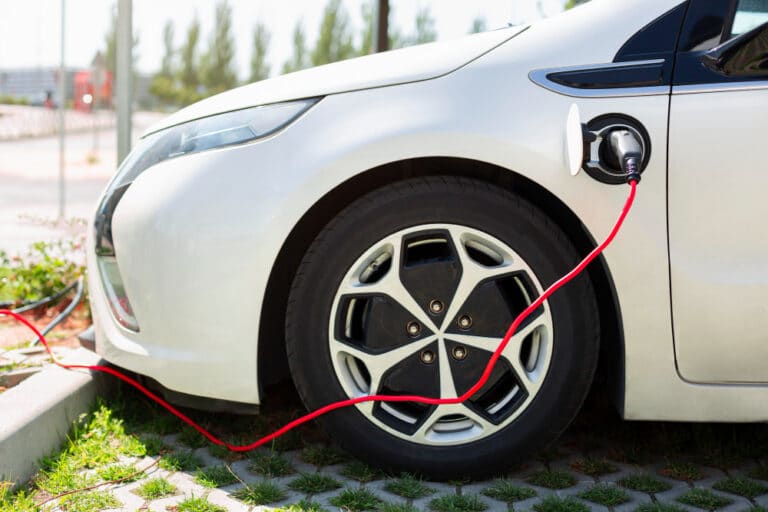La conexión entre el mantenimiento del vehículo y la contaminación ambiental

The relationship between vehicle maintenance and environmental pollution is a crucial aspect today, where sustainability is a central topic in society. A vehicle that does not receive proper care not only poses a risk to road safety but also negatively contributes to air pollution. Every time a service or repair is performed, waste is generated, much of which is harmful to the environment. Therefore, adopting a responsible approach to automotive maintenance can be a key strategy to minimize environmental impact, reduce the emission of pollutant gases, and promote a more sustainable future.
Proper maintenance of vehicles not only influences their performance and safety but also plays a crucial role in reducing environmental pollution. A vehicle in poor condition can produce a considerable increase in emissions of pollutant gases, thus contributing to the problem of air pollution. This article explores how regular and responsible maintenance can mitigate this impact on the environment, promoting sustainable practices and better air quality.
Environmental impacts of poor maintenance
A vehicle that does not receive proper maintenance becomes a source of pollution not only due to worn-out or damaged components but also due to the emission of toxic gases. Poorly maintained cars tend to emit a higher amount of carbon monoxide, which is one of the main air pollutants in cities. Additionally, other factors such as the poor condition of filters, the exhaust system, and lack of inspection of electrical systems can exacerbate this situation, putting at risk not only road safety but also the health of the environment.
Waste generated during maintenance
When vehicles are taken to a workshop for repair or maintenance, waste is generated that, in many cases, can be dangerous. This includes chemicals, oils, and filters that, if not handled properly, can contaminate soil and water. It is essential that workshops adopt practices of recycling and proper disposal of these materials, thus contributing to reducing their environmental impact.
The relevance of preventive maintenance
Implementing regular preventive maintenance is an effective strategy to reduce pollutant gas emissions. This type of maintenance includes periodic checks of the engine, exhaust system, and tires, ensuring that everything functions correctly. A well-tuned engine and filters in good condition can significantly decrease fuel consumption and reduce harmful emissions, contributing to a healthier environment.
Fuel consumption optimization
Another important aspect linking vehicle maintenance and pollution is fuel efficiency. Regular maintenance not only saves money for the owner by reducing gasoline expenses but also decreases the amount of greenhouse gases emitted by the vehicle. For example, keeping tires properly inflated and aligning wheels can improve fuel performance and reduce the car’s carbon footprint. For more information on how to optimize fuel consumption, you can read this article.
The role of the maintenance sector
The vehicle maintenance sector plays a fundamental role in promoting more sustainable practices. By providing quality service and advising owners on the importance of regular care for their vehicles, they contribute to the reduction of emissions in our cities. This sector should not only focus on repairs but also educate consumers about the impact a vehicle has on the environment and how to improve its sustainability.
Solutions for transportation pollution
There are various solutions to address transportation pollution, which can be enhanced through proper maintenance of vehicles. From promoting the use of cleaner alternatives, such as carpooling, to implementing technologies that reduce emissions, everyone can contribute to improving air quality. To delve deeper into this topic, you can read about the benefits of carpooling.
In summary, keeping vehicles in optimal condition is crucial not only for drivers’ safety but also for the health of the environment. With a focus on preventive maintenance and environmental education, a more sustainable mobility can be achieved that benefits everyone.
Proper maintenance of vehicles plays a fundamental role in reducing negative impacts on the environment. A car that does not receive regular preventive treatment can be a significant generator of pollution; as a misaligned engine, clogged filters, and deflated tires contribute to a higher fuel consumption and, therefore, higher pollutant emissions.
The relationship between the energy efficiency of the vehicle and maintenance practices is direct. An optimally functioning engine consumes less energy and, consequently, produces less carbon dioxide and other pollutant gases. This not only benefits the immediate environment but can also decrease the global impact of climate change. Neglecting maintenance can lead to an increase in hazardous waste from lubrication oils and brake fluids, which require special treatment to avoid harming the ecosystem.
Moreover, using more sustainable alternatives in maintenance, such as recycling components and using less polluting products, is essential to mitigate environmental pollution. Adequate education and awareness about the relationship between vehicle maintenance and the air quality we breathe can generate significant change in the behaviors of car owners.
The adoption of preventive maintenance practices that identify and solve potential problems before they become serious failures not only protects the vehicle but also directly demonstrates a commitment to a more sustainable environment.




